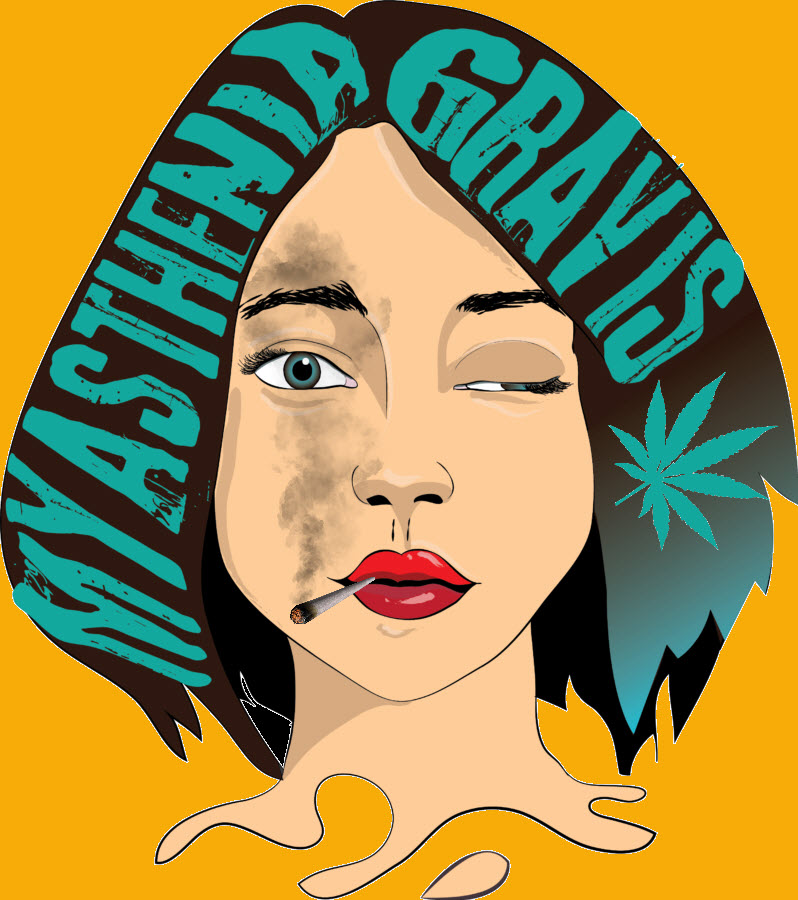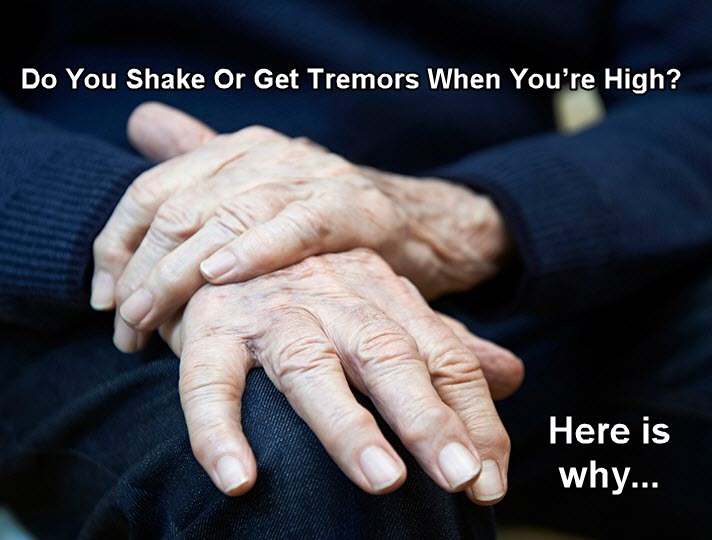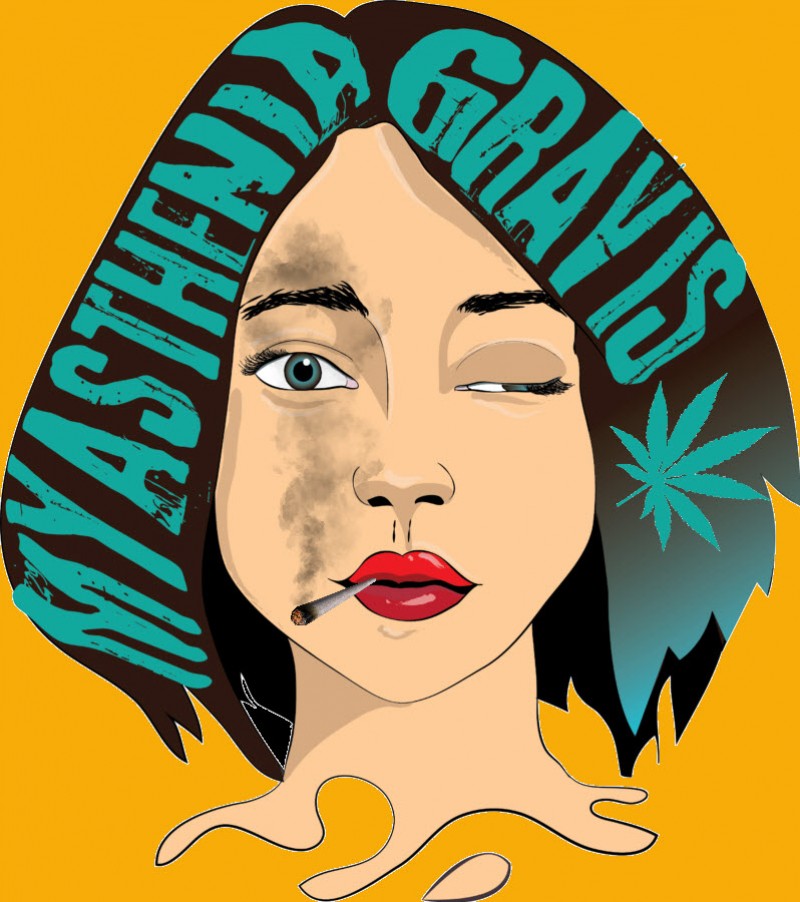Medical Marijuana for Myasthenia Gravis

The neuromuscular disorder, Myasthenia Gravis, causes weakness in the skeletal muscles the body uses for movement. It happens because the communication between the nerve cells and muscles becomes impaired. The disruption in communication stops muscle contraction and the end result is the total muscle weakness. Myasthenia Gravis is one of the most common primary disorders of a neuromuscular disorder.
The name is derived from Latin and Greek that literally means ´grave muscle weakness´. The name is often harsher than what really occurs. With help, it is possible to live a normal life. The most common features of this condition are drooping eyelids, difficulty chewing and swallowing, and respiratory difficulties in severe cases.
What is Myasthenia Gravis?
Myasthenia Gravis (MG) is an autoimmune disease that focusses on muscle weakness. The condition develops because of an insufficient amount of acetylcholine receptors on the postsynaptic membrane. Both acquired and congenital forms of MG can be found in cats, dogs, and humans. Myasthenia Gravis is a disorder of the space between your nerves and muscles also known as the neuromuscular junction. The nerve responds to an electrical signal and releases neurotransmitters crossing this area to activate muscle contractions to move.
As an autoimmune disorder, MG causes the immune system to attack itself. As a result, the acetylcholine neurotransmitter receptors are reduced in function and number. The muscles do not receive sufficient signals to move and become weaker. The body´s immune system makes antibodies, called acetylcholinesterase, that block or destroys the receptors sites for the neurotransmitter acetylcholine.
Typical Symptoms of Myasthenia Gravis
MG can affect any skeletal muscle but those muscles most affected are those controlling movement of the eyelid and eye movement. Swallowing and facial expression movement are also more affected. It could affect muscles on the arms, legs, or chest too, but this does not happen frequently. The condition could appear suddenly, and the symptoms are often overlooked.
The symptoms that doctors often notice first, is the weakness of the eye muscles. Sometimes the first symptoms include also slurred speech and difficulty swallowing. Each individual demonstrates its own unique degree of the disorder. Sometimes it only affects ocular myasthenia where only the eye is affected. Other times it is more generalized, and more muscles are affected, including those that let you breathe. There is a variety of symptoms. They are:
Drooping eyelids
Blurred vision
Abnormal facial expressions
Difficulty swallowing
Impaired speech
Shortness of breath
Weak neck, limbs, and extremities
Some factors can influence or trigger the symptoms of myasthenia gravis. This includes the following:
Emotional stress
Surgery
Bright sunlight
Viral infections
Immunization
Menstruation
Medication like ciprofloxacin, chloroquine, lithium, procainamide, procaine, beta-blockers, and statins
How do you know you have Myasthenia Gravis?
A physical and neurological test will be performed by the doctor to see if a person suffers from Myasthenia Gravis? In a specific test, the following will be checked:
Checking for muscle weakness
Testing reflexes
Checking muscles tone
Studying muscle coordination
Examining eye movement
Testing body sensations
Checking motor functions like touching the finger to the nose
Performing repetitive nerve stimulation tests
Blood test for antibodies related to MG
Testing lung function
What are the treatments and can Cannabis help?
In the beginning, there was no treatment for myasthenia gravis, but fortunately, there are now some ways to deal with the disorder. Today, medication or surgery can help to deal with the disorder. The most common drug used to treat the condition is anticholinesterase medication. It works by slowing down the acetylcholine break down in the neuromuscular junction. But there are a number of side-effects with any of the traditional medicines. That is where cannabis comes in handy.
Cannabis as a medical aid has been used for many years. Long before modern medicine was practiced, cannabis was used to treat many physical and psychological complaints. The active ingredients of cannabis can help to decrease the symptoms of stress and anxiety. It can also help to regulate activity in the nervous system. Both THC and CBD have beneficial properties that influence the endocannabinoid system to produce various effects on the body and mind.
Medical marijuana acts very much like anticholinesterase agents. It inhibits the enzyme acetylcholinesterase responsible for acetylcholine degradation. By doing this there is more time for acetylcholine to interact with its receptors before breakdown. Cannabis helps to overcome the blocked receptor that causes muscle contractions.
CANNABIS FOR BELL'S PALSY, READ MORE..
CANNABIS FOR BELL'S PALSY, WHY DOES IT WORK?
OR..








